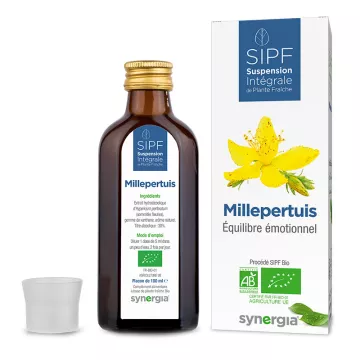


What is phytotherapy and how can it improve your health?
Phytotherapy, also known as herbal therapy, is the use of plants and plant extracts to prevent and treat various health conditions. It draws on traditional knowledge and modern research to offer an alternative or complement to conventional medical treatments. Plant extracts, such as essential oils, herbal teas and powders, are used for their therapeutic properties, from improving digestion to reducing anxiety.
What are the main benefits of phytotherapy?
The benefits of phytotherapy are varied and depend on the plants used. Among the most common benefits are improving gastrointestinal health, boosting the immune system, reducing inflammation, and supporting stress management and mental health. For example, chamomile is often used for its calming effects, while ginger can be effective in treating nausea.
How to choose the right plants for herbal medicine?
The choice of herbs for phytotherapy must be made with care and, ideally, with the advice of a health professional. Factors to consider include the specific conditions to be treated, possible drug interactions, and personal preferences in terms of mode of administration, whether herbal teas, capsules or topical applications.
Is herbal medicine safe?
Herbal medicine is generally safe when used correctly. However, as with any treatment, it is crucial to respect recommended dosages and take into account potential interactions with other medications. It's also important to choose high-quality products and check the provenance of plants to avoid contaminants such as pesticides.
How can you integrate phytotherapy into your daily routine?
Integrating phytotherapy into your routine can be as simple as adding an herbal tea to your daily diet or using essential oils in a diffuser to improve air quality and your well-being. For specific problems, such as stress or insomnia, suitable herbal supplements can be taken regularly, always respecting dosage instructions.
Is there any scientific research to support the efficacy of phytotherapy?
Yes, numerous scientific studies have validated the effects of certain plants used in phytotherapy. For example, research has shown that St. John's Wort can be effective in treating mild to moderate depression, while turmeric has been widely studied for its anti-inflammatory and antioxidant properties. It's important to consult reliable sources and keep abreast of the latest research to make informed decisions about herbal treatments.
What are the important considerations before starting an herbal treatment?
Before starting a herbal treatment, it's essential to consider a number of factors. Always consult a qualified health professional, especially if you have pre-existing medical conditions or are taking other medications that could interact with herbs. In addition, the quality of herbs is crucial: make sure you buy certified, contaminant-free products from reliable sources. Finally, be aware of possible side effects, and always start with low doses to see how your body reacts.
Can children use phytotherapy?
Phytotherapy can be used for children, but with great caution and under medical supervision. Children are more sensitive to the active substances in plants, and may react differently or more intensely than adults. It is therefore crucial to respect age-appropriate dosages, and to choose herbs known to be safe for young patients. Herbs such as chamomile and fennel are often recommended for mild digestive disorders in children.
Can phytotherapy be used for animals?
Yes, phytotherapy is also applied in veterinary medicine to treat a variety of conditions in animals. However, it is important to consult a veterinarian trained in the use of medicinal plants before treating an animal. Animal species do not react in the same way as humans to certain substances, and what is safe for humans may be toxic for some animals.
How is phytotherapy regulated in France?
In France, herbal medicine is regulated mainly by the Agence nationale de sécurité du médicament et des produits de santé (ANSM), which ensures that products placed on the market are safe and effective. Medicinal plants must be authorized and registered before they can be sold. Regulation includes the evaluation of scientific files justifying the traditional use of plants and, for certain products, clinical trials may be required.
What are the latest trends in herbal medicine?
The latest trends in herbal medicine include the use of technology to improve the quality and efficacy of plant extracts. Advanced extraction techniques, such as supercritical CO2, make it possible to obtain purer, more potent extracts. In addition, the integration of phytotherapy with other holistic approaches, such as aromatherapy and naturopathy, is gaining in popularity, offering a more integrative approach to overall health. Research continues to explore the antioxidant and anti-inflammatory potential of plants, often in response to growing consumer demand for natural treatments.